These materials include correspondence regarding an inquiry into Max LaChapelle from the Examining Officer, Second Training Camps in Detroit, Michigan.
1910-1919
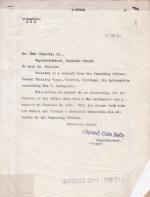
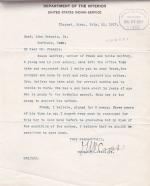
These materials contain correspondence regarding a request by Susan Godfrey to have her son Frank returned to his home in Minnesota.
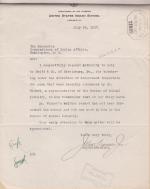
Carlisle Indian School Superintendent John Francis Jr. requests to sell two cows to Swift & Co. in Harrisburg. The cows were recently condemned by Bureau of Animal Industry Representative Dr. Winant during the tubercular test. Assistant Commissioner of Indian Affairs E. B. Meritt grants permission.
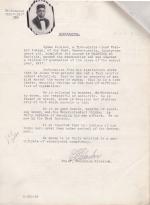
This material includes correspondence concerning 1917 graduate Lyman Madison. This includes letters, a photograph, and his memorandum.
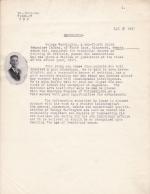
This material includes correspondence concerning George Warrington. This includes letters, a photograph, and his memorandum.
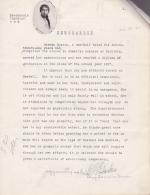
This material includes correspondence concerning the competency evaluation of Uneeda Burson. This includes letters, a photograph, and her memorandum.
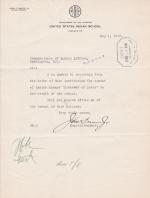
Carlisle Indian School Superintendent John Francis Jr. asks the Commissioner of Indian Affairs how much money is to the credit of "Indian Moneys, Proceeds of Labor, Carlisle School." Assistant Commissioner E. B. Meritt informs Francis Jr. that the account's balance is $2,326.50.
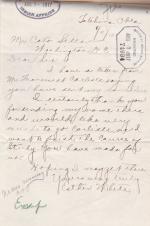
These materials contain correspondence from Esther White to Commissioner of Indian Affair Cato Sells, thanking him for arranging her enrollment at the Carlisle Indian School.
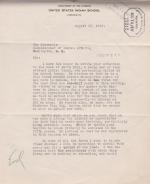
These materials contain correspondence regarding a request by David Hill, a Canadian-born member of the Mohawk Nation, to enroll at Carlisle. His request is denied.
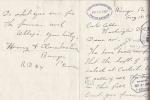
These materials contain correspondence regarding a request from outing patrons Henry and Clara McEwen that Carlisle allow outing pupils for work on Pennsylvania farms in the upcoming fall. Their request is denied because of curriculum changes at the school.
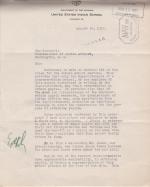
Carlisle Indian School Superintendent John Francis Jr. informs the Commissioner of Indian Affairs that he is sending Disciplinarian Mr. Duran to Oklahoma to recruit Osage students, who will pay their own transportation fees and tuition. Francis Jr. requests authority to send Agriculture Teacher Leo Marks to Wisconsin, Minnesota, and Sioux…
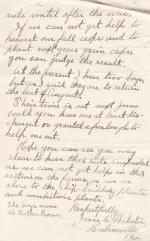
This material includes correspondence regarding two students on the outing program on the farm of Jesse Webster. Webster is requesting an exception to a new outing program guideline that students return to the school for academic work in August, citing wartime government demands for more food production.
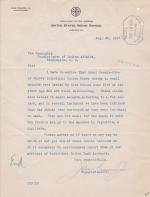
Carlisle Indian School Superintendent John Francis Jr. informs the Commissioner of Indian Affairs that there are 25-30 small Individual Indian Money checks that were shipped 5-6 years ago and have never been cashed due to being lost, destroyed, or too low of an amount of money. He requests to remove the balances of these checks because he…
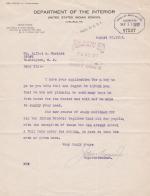
Carlisle Indian School Superintendent John Francis Jr. denies Alfred A. Marlatt to host a student on outing over the winter because the school's new policy requires all students to stay at the school over the winter unless they can attend public school for a full term while on outing.
Marlatt forwards Francis Jr.'s letter to Secretary of…
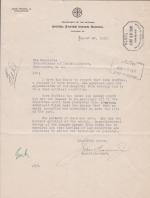
This document contains a letter concerning the appendicitis case of Nora Buffalo.
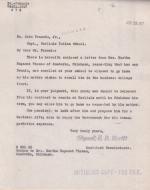
These materials contain correspondence regarding a request by Martha Napawat Thomas to have her son Dennis Thomas returned home in order to attend a local business college.
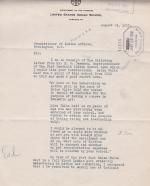
These materials contain correspondence regarding a request to enroll Helen White Calf at Carlisle to take courses in sewing and dressmaking.
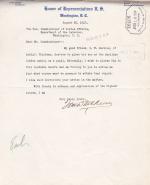
These materials contain correspondence regarding a request from Congressman Tom D. McKeown to enroll the son of G. W. Harkins at Carlisle.
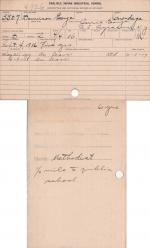
File of Margaret House, a member of the Oneida Nation, who entered the school on August 27, 1917, and departed on June 8, 1918. This file includes information cards, an application for enrollment, and correspondence.
House was not a student attending classes at the school due to her young age. Instead, she attended the local public…
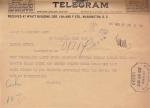
These materials contain correspondence regarding a request to waive the age requirement to enroll Lonie Evans in Carlisle.
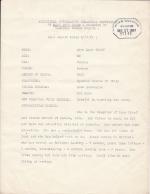
Correspondence concerning Mary Lone Chief and her trust allotment, including competency evaluations, a photograph, and her memorandum.
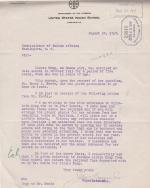
These materials contain correspondence regarding a request by the guardian of Lizzie Kemp to have her released from her term of enrollment at Carlisle.
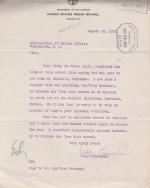
These materials contain correspondence regarding correspondence a request by the guardian of Mary Lieb to have her released from Carlisle in order to have her enrolled at the Haskell Institute.
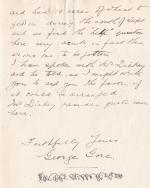
This material includes correspondence related to the request of George Gore, a farmer and outing patron in Newton, Pennsylvania, to retain some outing students beyond their normal term. Specific correspondence relates to students John Wolfe and Cornelius Hardman (here Cornelius Hartman). Additionally, this material discusses the decision of…
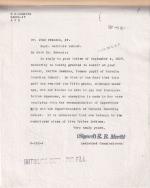
These materials contain correspondence regarding a request to enroll Nellie Hawkins at Carlisle.
